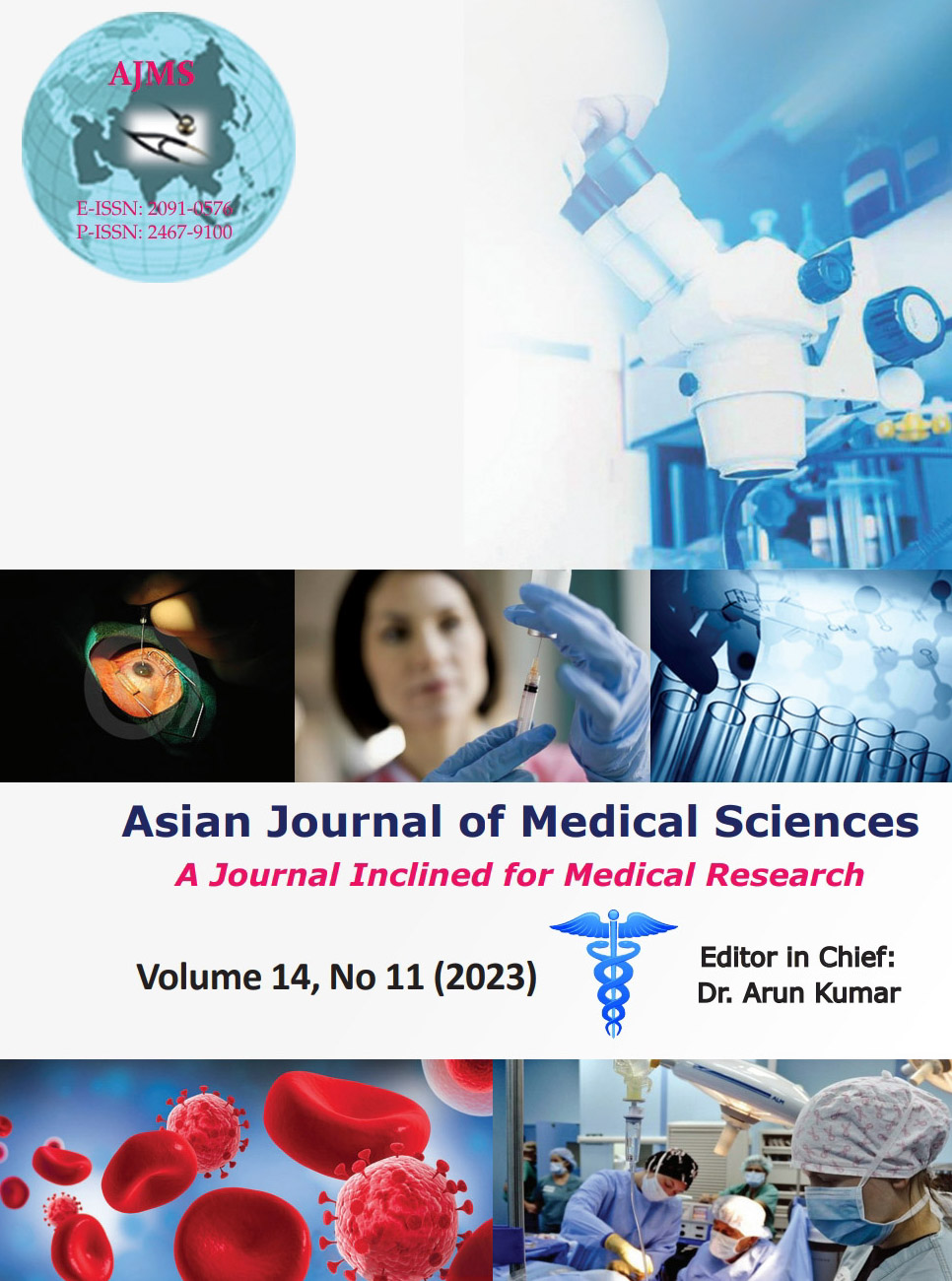A study to determine systemic anti-inflammatory mediators in chronic obstructive pulmonary disorder
Keywords:
Chronic obstructive pulmonary disease; Systemic inflammation; Soluble interleukin 1 receptor IIAbstract
Background: Chronic obstructive pulmonary disorder (COPD) is a prevalent and debilitating respiratory condition characterized by chronic inflammation within the airways and lung tissues. By elucidating the specific mediators involved and their potential therapeutic implications, this research seeks to contribute to a better understanding of the inflammatory mechanisms underlying COPD and explore novel avenues for managing the disease.
Aims and Objectives: The objective of study is to determine systemic anti-inflammatory mediators in COPD and its correlation with disease severity.
Materials and Methods: The study analyzed systemic levels of several anti-inflammatory mediators, namely, soluble interleukin 1 receptor II (sIL-1RII), soluble tumor necrosis factor receptor p55 (sTNF-R55), and sTNF-R75, as well as C-reactive protein (CRP) and lipopolysaccharide binding protein (LBP), in 55 patients with stable COPD (median forced expiratory volume in 1 s [FEV1] of 34% predicted, ranging from 15% to 78%) and compared them with 23 control subjects. In addition, changes in these mediators were studied in 13 COPD patients (median FEV1 of 34% predicted, ranging from 19% to 51%) during the first 7 days of hospitalization for an exacerbation of the disease.
Results: The results revealed that patients with stable COPD showed evidence of a systemic inflammatory process, characterized by an elevated leukocyte count, increased levels of CRP and LBP, and moderate increases in both sTNF-Rs. However, the sIL-1RII levels did not differ significantly between patients and controls. During the treatment of disease exacerbations, systemic levels of CRP (at day 3) and LBP (at day 7) significantly decreased compared to day 1, while sIL-1RII levels increased.
Conclusion: Based on these findings, it is suggested that there is an imbalance in systemic levels of pro- and anti-inflammatory mediators in patients with stable COPD. The observed increase in the anti-inflammatory mediator sIL-1RII during treatment of exacerbations may play a role in the clinical improvement observed in these patients.
Downloads
Downloads
Published
How to Cite
Issue
Section
License
Copyright (c) 2023 Asian Journal of Medical Sciences

This work is licensed under a Creative Commons Attribution-NonCommercial 4.0 International License.
Authors who publish with this journal agree to the following terms:
- The journal holds copyright and publishes the work under a Creative Commons CC-BY-NC license that permits use, distribution and reprduction in any medium, provided the original work is properly cited and is not used for commercial purposes. The journal should be recognised as the original publisher of this work.
- Authors are able to enter into separate, additional contractual arrangements for the non-exclusive distribution of the journal's published version of the work (e.g., post it to an institutional repository or publish it in a book), with an acknowledgement of its initial publication in this journal.
- Authors are permitted and encouraged to post their work online (e.g., in institutional repositories or on their website) prior to and during the submission process, as it can lead to productive exchanges, as well as earlier and greater citation of published work (See The Effect of Open Access).




